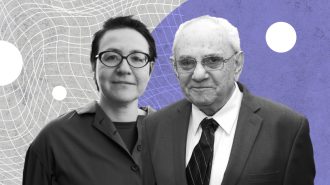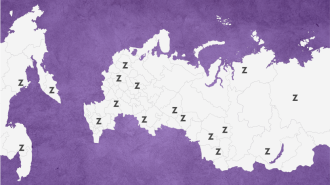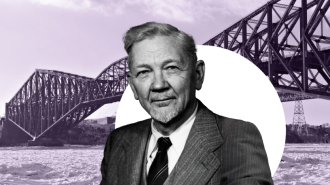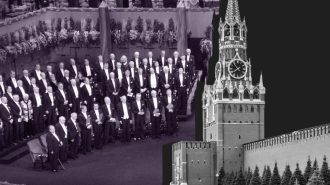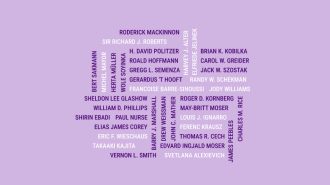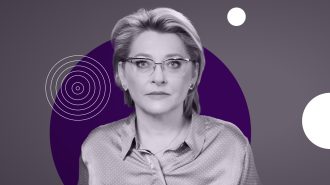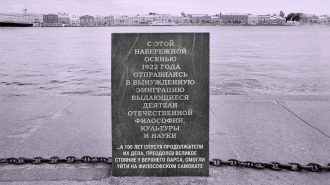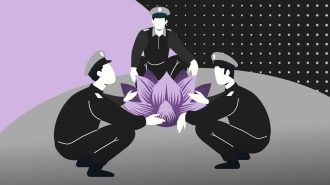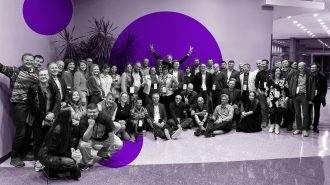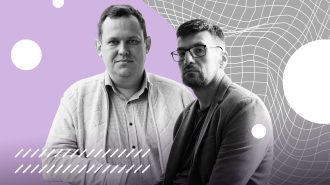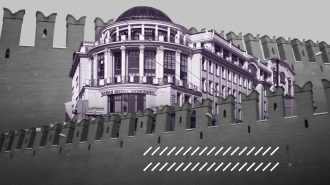The Innopraktika Foundation of Vladimir Putin's daughter, Katerina Tikhonova, has made a number of statements about its readiness to gather development institutions into "one perimeter". The public speaker to promote these initiatives was Tikhonova's friend Natalia Popova, a former photo model and now the first deputy general director of Innopraktika. Over the past few years, Popova has been lobbying for Innopraktika's interests in Africa and the BRICS countries, and probably wants to continue the reform of development institutions that began in 2020 but was interrupted.
university
The ETH Zurich has adopted new security rules that effectively make it impossible for Russian students to enrol in the university's master's and doctoral programmes. T-invariant managed to speak to students who have lost the opportunity to study at this prestigious institution and to take comments from the ETH itself.
The redistribution of the market for the publication and distribution of academic scientific journals has led not only to serious delays in the publication of scientists' works, but also to Russia's self-isolation in the global market of scientific periodicals. By the beginning of December 2024, almost 75% of Russian academic scientific journals have not gone to press on time. This is the price of striving to publish scientific journals with a "Russian identity" and without foreign influence. T-invariant tells us what has already happened to Russian scientific periodicals and what else may happen to them.
Today one can hear more and more often that Russia in the coming decades will live under "eternal Putin". The political regime is stable, the economy shows stability. Will the country turn into the USSR 2.0 or into an "orthodox Iran"? Are there prerequisites for regime change in Russia? T-invariant spoke to Andrei Yakovlev, a well-known economist and associate researcher at the Davis Centre at Harvard University.
Viktor Sadovnichy, the 85-year-old rector of Moscow State University, has been reappointed for a seventh term. This is not quite a typical situation: today the average age of a rector is under 60. T-invariant has studied the biographies of the heads of Russian universities in detail and realised that the problem with the rector corps is different: it is remarkably monotonous, as if they have specially selected people according to the average statistical pattern. Both the rector of Moscow State University and the heads of unremarkable regional universities have similar biographies and typical careers.
Russian philosopher Mikhail Bakhtin explored carnival and laughter culture in the stagnant years of the late Soviet Union and called such topics "material-bodily bottom. Half a century later, anthropologists held a conference about excrement in St Petersburg entitled Anthropopology: Brown Studies and the Unclean Turn.
One of the winners of the George Gamow Prize this year was Ekaterina Zhuravskaya, a professor at the Paris School of Economics. In an interview with T-invariant, she told how modern economic science works, whether it is possible to evaluate the results of sanctions and what studies of Goebbels' propaganda can tell us about the current military mobilization of Russian society.
The Russian-American Association of Scholars has announced the names of the winners of the prize, which is awarded to members of the Russian-speaking scientific diaspora. This year they were Professor Ekaterina Zhuravskaya of the Paris School of Economics and Professor Vladimir Vapnik of Columbia University.
A recent article by a group of American professors on the introduction of DEI into university practice in the United States has caused a wide resonance. To what extent can DEI be considered a purely American phenomenon, and to what extent has it been assimilated by academic communities in other countries? Germany is a curious example. This is the subject of an article prepared for T-invariant by Alexander Libman, Doctor of Economics, Professor of Russian and East European Politics at the Free University of Berlin.
Moscow State University has announced the creation of the "world's second or third most powerful" supercomputer, having purchased components for it through a Chinese firm trading on AliExpress. T-invariant tells us how, under conditions of total sanctions on Sparrow Hills, they managed to assemble a classified computing complex and what Vladimir Putin's daughter Katerina Tikhonova and her Institute of Artificial Intelligence have to do with it.
Students of the "School of District Anti-Corruption" together with Groza and T-Invariant studied the composition of expert councils at the Ministry of Education and Science of the Russian Federation. It turned out that more than 10 per cent of the experts who influence decision-making "on the most important issues of the ministry's activities" are plagiarists and violators of academic ethics.
How do universities in exile try to preserve academic freedoms for those who have lost them? Why and at what point does the idea of boycotts of universities begin to contradict academic freedoms? T-invariant spoke to Dmitry Dubrovsky, PhD in History, Professor at the Free University.
Since September 1, a number of Russian universities have begun training "information warfare specialists". Such programs were "tested" even before the full-scale invasion, but this year there have been significantly more of them. T-invariant found out which universities have such programs and who will teach students propaganda.
The internal German resistance to the National Socialist dictatorship is a phenomenon that is not well known to anyone other than specialists. Nevertheless, there were many hotbeds of such struggle. T-invariant tells the story of a group of scientists and teachers who united around professors from the University of Freiburg. Its members worked closely with other German resistance groups and, despite the risk of exposure and threats to their lives, remained true to their professional and civic duty.
The DEI ideology is diversity, equity, inclusion. What will happen to science if DEI principles win? T-invariant talked about this with one of the authors of the article “Politicizing science funding undermines public trust in science, academic freedom, and the unbiased generation of knowledge”, professor of biomedicine at Northwestern University in Chicago Igor Efimov.
Tomsk State University graduated the first masters of the pilot program "Legal Linguistics". As graduation theses, students defended a portfolio of linguistic research and expert assessments on real criminal and administrative cases.
The FSB has been persecuting members of the Russian Academy of Sciences Sergey Abramov and Oleg Kabov for several years now. Their criminal cases are so unprecedented that the American Physical Society, one of the largest in the scientific world, is worried about their fate. Its representatives are sending letters to the President of the Russian Academy of Sciences and the Minister of Science and Higher Education of the Russian Federation.
University education is increasingly becoming a hostage to political upheavals. Mass migrations of scientists are the new reality of academic life. What are the main problems of scientists in exile? Do they have a chance to preserve traditions, scientific schools and programs? These and other issues were discussed by participants of the conference Sustainable knowledge: Lessons from Universities, Scholars and Students in Exile, which was recently held in Vilnius.
In the spring of 2022, major publishers of scientific periodicals stopped collaborating with Russian organizations. In response, the Russian authorities initiated a “white list” of publications in which publication would be the basis for grant reporting. About 500 journals recently disappeared from the list - and returned with a recommendation to refrain from paying for open access in journals of the publishing house Elsevier, which announced that payments would be sent to support Ukraine. Scientists who do not follow this advice risk facing criminal charges article about treason.
At the end of June, acting Rector of the Russian State University for the Humanities named Andrey Loginov, ex-Deputy Minister of Justice of Russia. This happened against the backdrop of a public scandal around the “Higher Political School” named after Ivan Ilyin, headed by Alexander Dugin, created at the university. T-invariant analyzed Loginov’s biography and found that he has no less importance than Ilyin and Dugin, grounds to claim the title of the main ideologist of the “Russian world”.
Who are they - convinced patriots who brought the advance of the “Russian world” closer? Or banal opportunists who took advantage of the situation for mercantile purposes? T-invariant presents the results of a study of the biographies of heads of universities located in the occupied Ukrainian territories.
Academicians turned to Vladimir Putin with a proposal to head a new body of the Russian Academy of Sciences - the Board of Trustees. But not everyone was able to vote for this decision. FSO employees blacklisted more than twenty scientists and did not allow them to attend the General Meeting of the Russian Academy of Sciences.
In the third year after the start of Russia’s full-scale invasion of Ukraine, journalism faculties and media departments at all universities in the country changed their policies. the transfer of experience to novice journalists from military officers, Z-bloggers and even former prisoners has become regular and widespread.
February 24, 2022 is a date that divided the lives of millions of people into before and after. Millions of Ukrainians became refugees, hundreds of thousands of Russians were forced to leave the country, thousands of people became political prisoners. Schools and universities have been invaded by Z-ideology. This gave rise to a new Russian reality, which more than 75 sociologists, historians, demographers and economists studying Russian society tried to comprehend.
The eighth essay in the “Creators” series is dedicated to Stepan Timoshenko, one of the founders of modern applied mechanics. In the “Creators” project T-invariant in collaboration with RASA (Russian-American Science Association) continues to publish a series of biographical essays about people from the Russian Empire who made significant contributions to world science and technology.
42 Nobel laureates in an open letter called on world leaders not to recognize the legitimacy of Putin as president: “The war in Ukraine and the murder of Alexei Navalny do not concern only Russia and Ukraine. The Putin regime has shown that it poses a direct and clear threat to all humanity.”
42 Nobel laureates called on world leaders to increase aid to Ukraine, protect political prisoners in Russia and not recognize Putin as the legally elected president.
The Reforum has published five tasks for the restoration of Russian science, proposed by T-invariant editor-in-chief Olga Orlova.
Over the course of two years, several thousand scientists left Russia, sometimes entire teams were evacuated. Some of them managed not only to survive, but to be reborn in a new reality. In February 2024, the Agency for Control and Quality Assurance of Higher Education of Montenegro decided on state accreditation of the Faculty of Liberal Arts and Sciences (FLASH), which was created by former employees of the Moscow Higher School of Social and Economic Sciences. Teodora Shanin. And this is not the only example of how fugitive Russians are reassembling academic projects.
In Chicago, at the annual conference of the Russian-speaking American Scientific Association (RASA), sociologists who have recently been living in the United States chose for their presentations topics that can now hardly be discussed publicly while in Russia. Sergey Erofeev (Rutgers University)presented a brief overview of the most interesting presentations for T-invariant.
In Chicago, at Northwestern University, an annual conference was held, organized by the Russian-American Association of Scientists - Russian American Science Association (RASA). Mutual support, academic solidarity, political context and political division in the scientific community - in report by Denis Cheredov.
Behind the names in the “Chronicle of the Persecution of Scientists”, which is jointly conducted by T-invariant and CISRUS, there are specific people forced to fight for their civil and academic freedoms. We decided to tell in detail who and why decides to go against government pressure in science and education. The first material focuses on the history of Novokolledzh, one of the largest colleges in Russia.How did the institution begin to work, despite the refusal of accreditation and the resignation of the director, candidate of historical sciences Sergei Chernyshov? Why do the new director Yuri Lobanov and Sergei Chernyshov himself not give up their professional and civic positions? Yulia Chernaya spoke with the former and current leaders of Novocollege - Sergei Chernyshov and Yuri Lobanov.
Why did the Higher School of Economics find itself in the worst position among all the new famous universities that emerged in post-Soviet Russia? At what point did the era of solidarity with state ideology begin at the university? Was the pressure on Yaroslav Kuzminov pressure on the university itself or on the head of the Central Bank of the Russian Federation, Elvira Nabiullina? What are the reasons and consequences of including the HSE on the sanctions list? Explains former vice-rector of the National Research University Higher School of Economics Andrei Yakovlev.
Is it possible to say that the USSR annexed Lithuania? Why was the contract with the emigrant professor officially terminated? What do other teachers and students of Vilnius University, as well as Andrey Desnitsky himself, think about this? T-invariant tried to understand how such issues should be resolved from the point of view of the norms of the academic community.









